Although India is still a developing economy, the impact of globalization on the country has led to better infrastructure over the years. Although the metro cities boast of swanky malls, wide roads and convenient modes of public transport, the countryside has generally been lagging behind in terms of development. Many villages lack even basic amenities such as availability of clean drinking water, electricity and facilities for education. However, a few villages decided that they won’t wait for the authorities to look into their grave concerns and take necessary steps to eradicate their problems and left no stone unturned in steering their settlements into well-developed regions. Some of these villages have even surpassed a few tier-II Indian cities in terms of their infrastructure and organization. Here are 10 such villages from different parts of the country, which have set an example for many rural areas from India.
1. Mawlynnong, Meghalaya
Cleped as the ‘Cleanest Village’ in the whole of Asia, Mawlynnong is a perfect example of what an ideal village should look like. Situated at a distance of 90-kilometers from the state’s capital, Shillong, Mawlynnong leaves a lasting impression on the minds of visitors through its sparklingly clean roads and well-kept lush green surroundings. Apart from the applause-worthy civic sense of its residence, the village also boasts of an impressive literacy rate of 100%, which is not usual in the rural areas of India. The inhabitants of Mawlynnong predominantly belong to the ‘Khasi’ tribal community, who keep themselves engaged with agricultural activities.
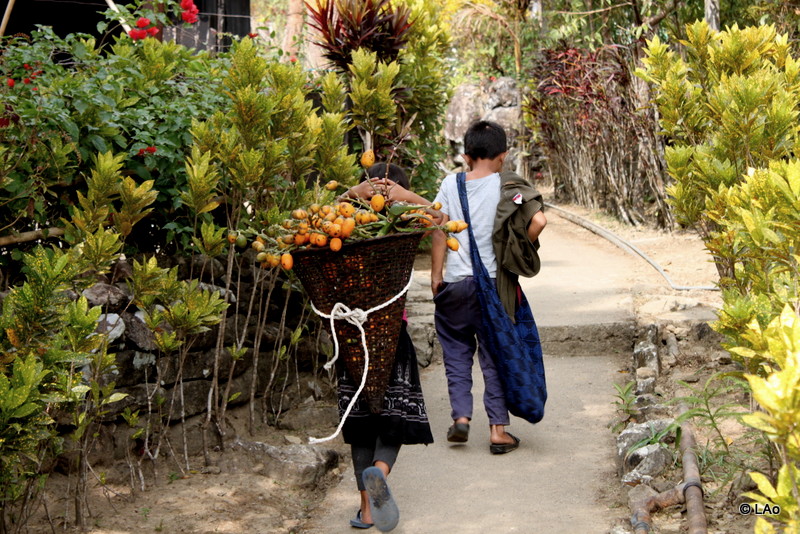
Photo Credit http://www.trekearth.com/gallery/Asia/India/Northeast/Meghalaya/Mawlynnong/photo1420489.htm
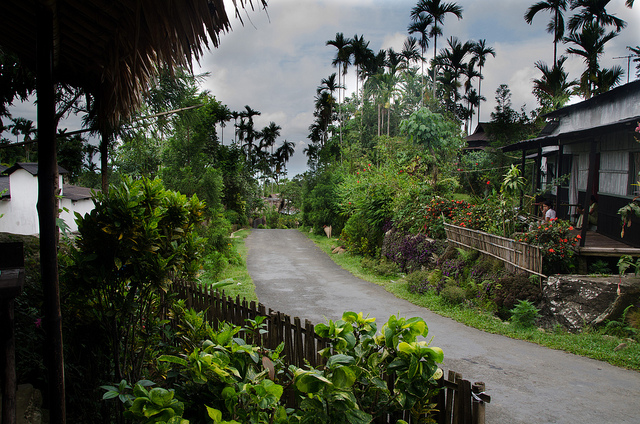
Photo Credit http://www.hoboist.com/meghalaya-abode-of-clouds
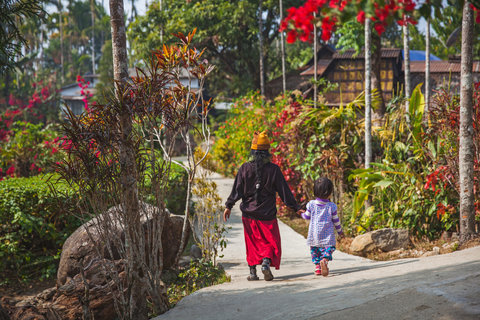
Photo Credit http://india.blogs.nytimes.com/2014/03/10/cleanest-village-questions-its-blessings-amid-influx-of-visitors/?_r=0
2. Dharnai, Bihar
Like many other villages in India, even Dharnai, a sleepy countryside settlement in Bihar, suffered from electricity woes for a few decades. The villagers had to rely on kerosene lamps and expensive diesel generators to illuminate their living spaces. However, the villagers decided to fight for their concern all by themselves and got a solar power system installed, with the help of the non-governmental social organization named ‘Greenpeace.’ Dharnai has now gained the reputation of being an ‘energy independent’ Indian village, in 2014.
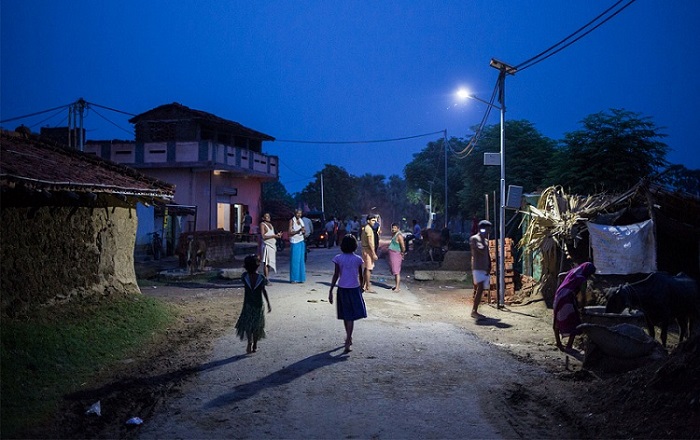
Photo Credit http://www.dharnailive.org/stories/lights_dharnai_action
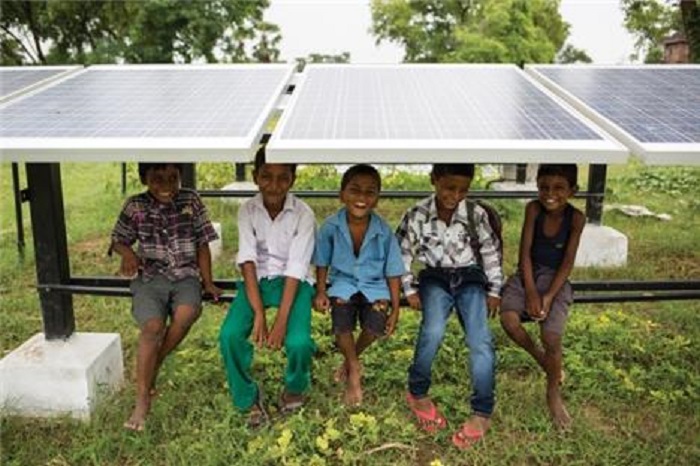
Photo Credit http://www.thebhojpuri.com/language/bhojpuri/1007591_chanda-mama-dur-ke.html
3. Pothanikkad, Kerala
God’s own country never ceases to amaze, be its enchanting backwaters or its serene beaches. The state is also home to the Pothanikkad village, which is the first of its kind in the whole country to become completely literate. According to a census conducted in 2001, approximately 18000 residents had inhabited this place and surprisingly, all of them have attained basic education. The village boasts of many state of the art schools, which impart education by adhering to the same standards as many urban institutions.
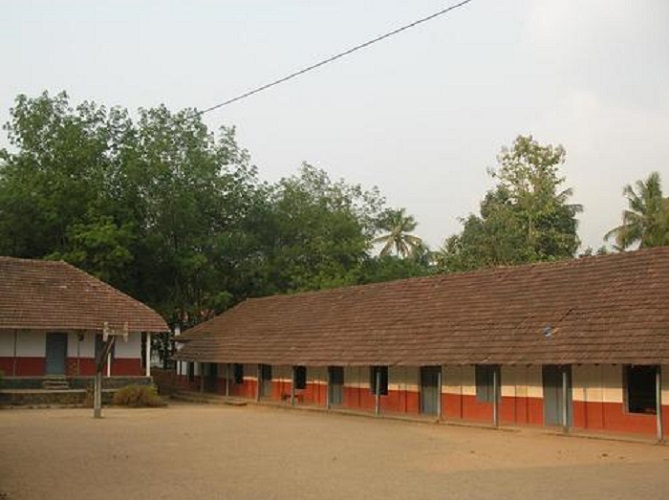
Photo Credit http://kannadigaworld.com/news/vishishta/117844.html
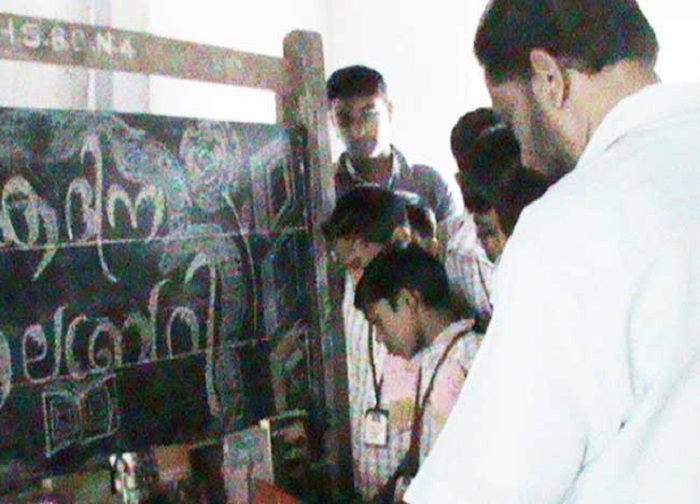
Photo Credit http://www.youngisthan.in/travel/holidays-to-unique-villages-of-india/25518
4. Punsari, Gujarat
Around 80-kilometers away from the capital of Gujarat, Gandhinagar, is a village named Punsari, which has taken the internet by storm. This significantly developed village is equipped with Wi-Fi connectivity which enables its residents to browse internet without any limitations. Air-conditioners and CCTV cameras are installed in various schools situated in Punsari in a bid to provide sophisticated education to the villagers. Cameras have even been installed at prime locations in the village to prevent incidents of littering and keeping its exteriors tidy. It is said that many delegates from African nations, visit this Indian village to observe its infrastructure and incorporate the same in their hometowns.
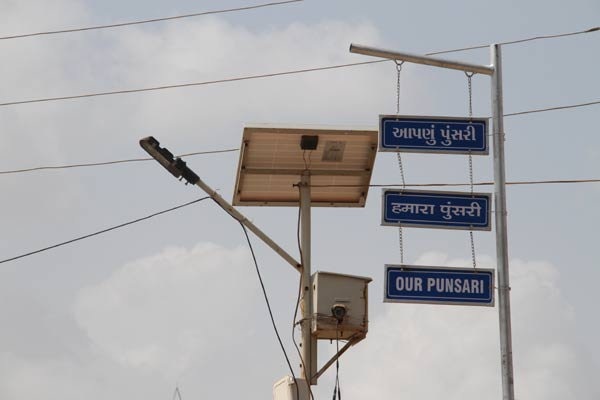
Photo Credit http://www.scoopwhoop.com/inothernews/mera-gaon-mahaan/
5. Shani Shignapur, Maharashtra
Shani Shignapur has been dubbed as the ‘safest village’ in the whole of India and has been the subject of curiosity of many people from across the country. Interestingly, none of the buildings in the whole village has doors to keep them secure, yet no cases of robbery or such untoward incidents have been reported. The village also has a branch of the esteemed ‘UCO’ bank, which is never locked, earning the title of ‘The country’s first lockless branch.’
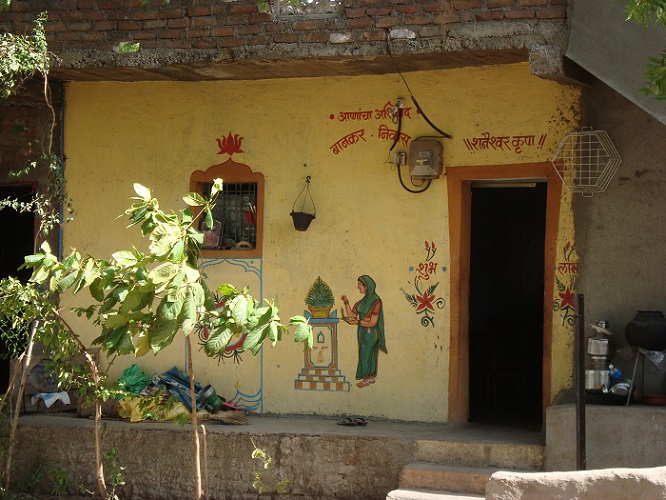
Photo Credit http://rajasthanholidays.org/best-of-india-travel-west-india/
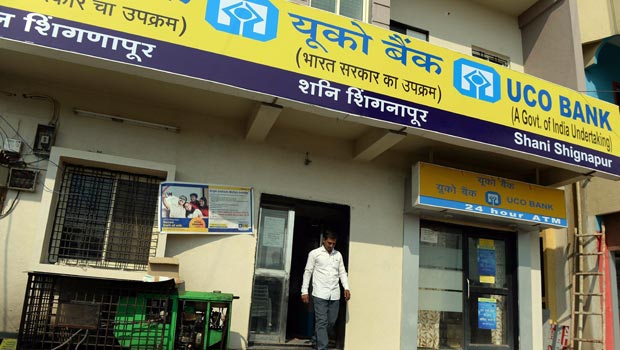
Photo Credit http://timesofoman.com/article/45858/World/Doorless-India-village-sure-thieves-wont-be-knockingVillage
6. Hodka Village, Kutch
Hodka village has proved that tourism in the state of Gujarat is not merely restricted to the Gir forest ranges and the beautiful beaches. This picturesque village, situated close to the Rann of Kutch, gives tourists an insight of ancient Indian culture. Here, every girl in the village at a tender age is taught the art of embroidery which is then exemplified on the interior and exterior of the mud houses they reside in. Each house in this village has their own unique designs and patterns making it a spectacle to walk through for tourists.
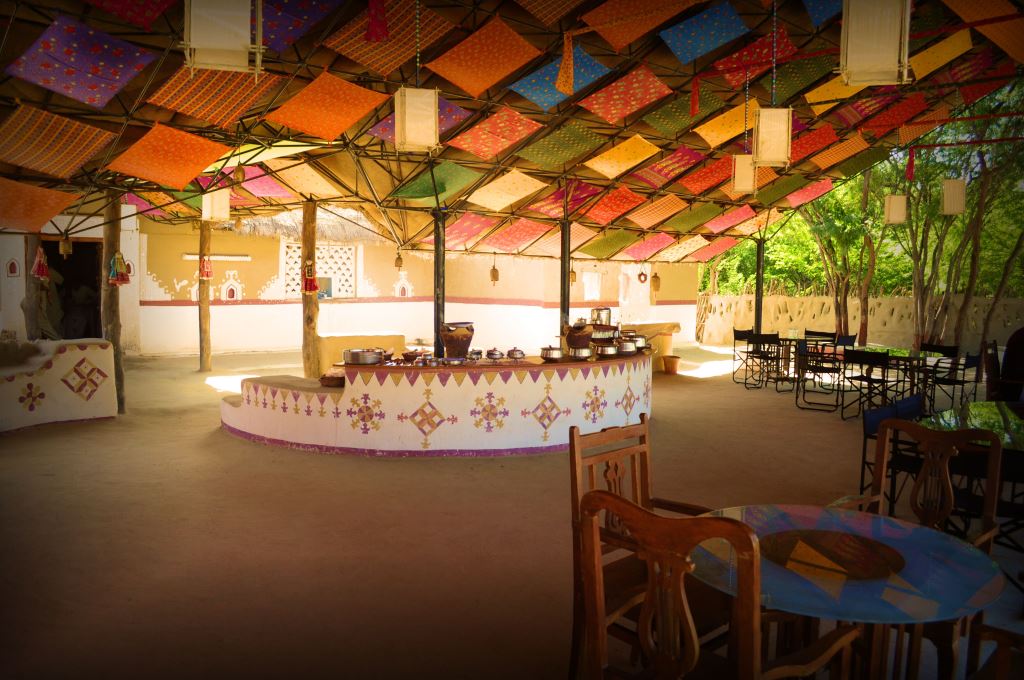
Photo Credit http://www.craftcanvas.com/blog/tag/kutch
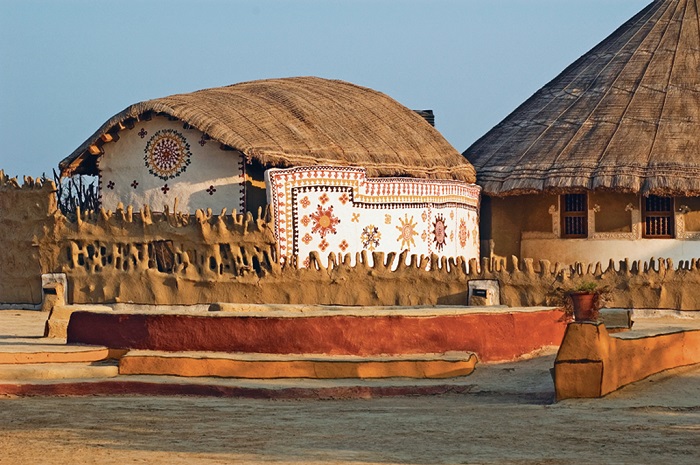
Photo Credit http://www.natgeotraveller.in/magazine/month/september-2014/go-green–22-eco-sensitive-resorts-in-india-353/
7. Bekkinakeri, Karnataka
The residents of Bekkinakeri had to deal with the problem of finding traces of defecation in public places. Although the villagers did all they can, including issuing notices to stop the practice, most of them didn’t pay heed to the requests. A few volunteers then started visiting favorite spots of these wrong-dumping-doers and greeted them during the mornings, at a time when they usually turn up to get the job done. As a result of the embarrassment caused due to this, the offenders stopped defecating and littering public spaces and finally the problem was solved. Bekkinakeri is considered to be one of the neatest villages in India.
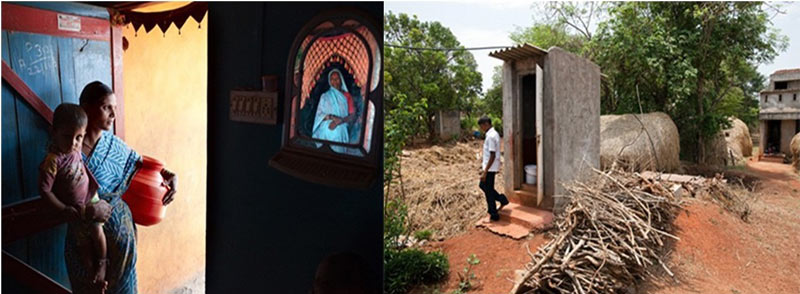
Photo Credit http://homegrown.co.in/solar-power-sanitation-empowerment-more-the-stories-of-7-of-indias-most-progressive-villages/
8. Hiwari Bazar, Maharashtra
Hiwari Bazar has broken the age-old notion that Indian villages are generally inhabited by economically backward farmers. Hiwari Bazar is a home to five dozen millionaires and is way more developed than other villages in the state of Maharashtra. One of the sole reasons behind such improved standard of living is the motivation provided by the man named Popatrao Powar. Powar, who was the former Sarpanch of Hiwari Bazar, motivated people to refrain from the use of toxic substances and utilize their time in rain water harvesting and other similar activities. Though 169 families couldn’t even buy themselves two meals a day during 1990’s, only three families are poverty stricken as of now.
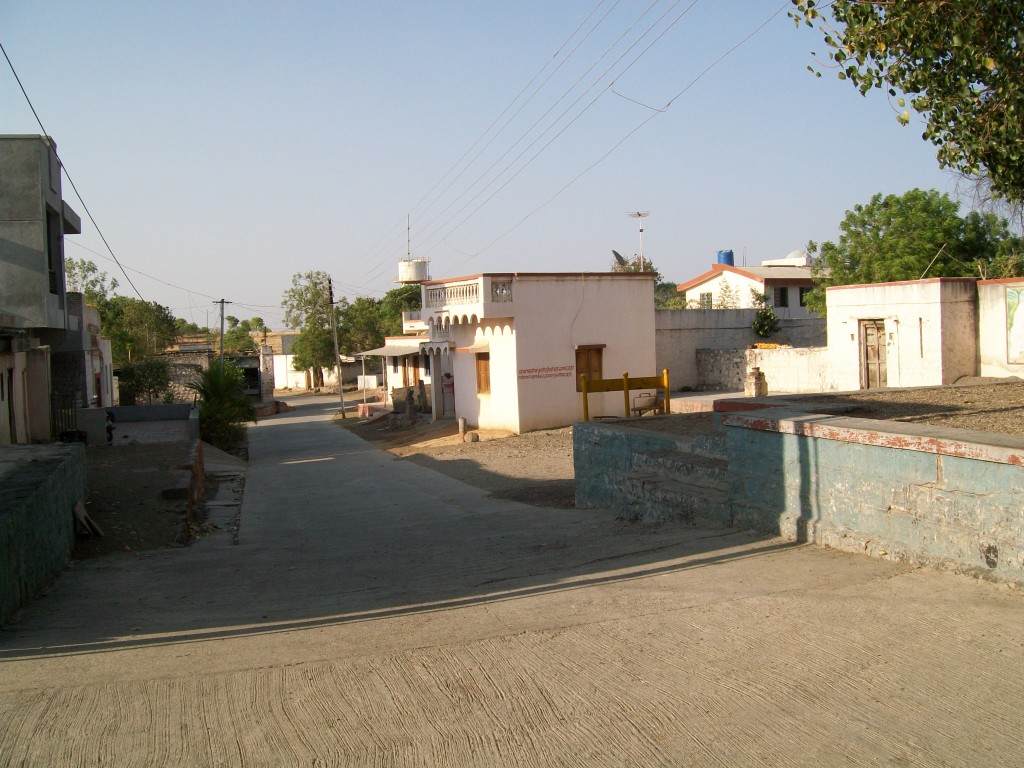
Photo Credit http://rise.mahindra.com/village-of-60-millionaires/
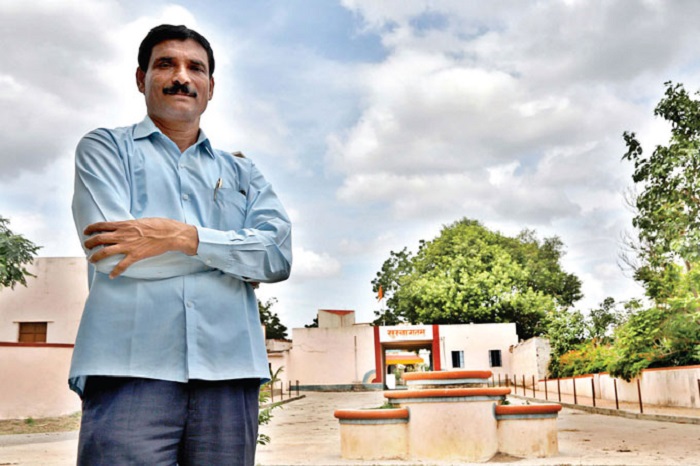
Photo Credit http://www.tehelka.com/one-village-60-millionaires-the-miracle-of-hiware-bazar/
9. Ballia, Uttar Pradesh
Villagers from Ballia had no access to good drinking water, since they had hand pumps which let out water mixed with toxic substances such as arsenic. As a result, they toiled hard to extract water from deeper parts of the ground, which wasn’t contaminated. The surprising fact is that even a 95-year-old man joined the villagers in their quest for this achievement. Since then and as of now the village consumes unpolluted water which has rapidly decreased the toll of health hazards in the village.
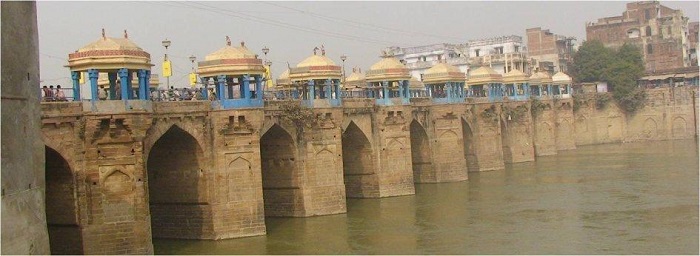
Photo Credit http://www.hoparoundindia.com/uttar-pradesh/city-guides/ballia.aspx
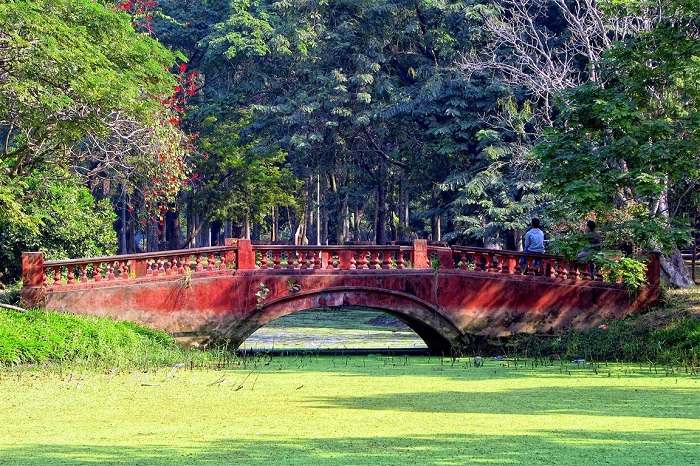
Photo Credit https://snapflycook.wordpress.com/2012/07/31/the-best-of-india-2009/
10. Chappar, Haryana
Unlike most villages in India, which are governed by a male leader (also commonly known as a ‘Sarpanch’), Chappar is managed by a woman named Neelam. The village is popular for following the tradition of distributing sweets amongst all its residents, when a baby girl is born. Subtly, the residents are also conveying the message of aborting the practice of female feticide. The residents are constantly thinking of newer ways of incorporating women empowerment schemes.
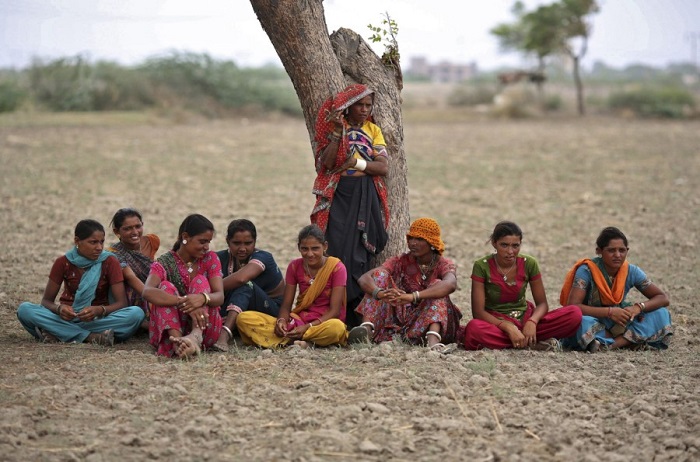
Photo Credit http://www.sueddeutsche.de/wirtschaft/steigende-lebensmittelpreise-wie-indien-unter-wetter-und-weltmarkt-leidet-1.1440293-7






